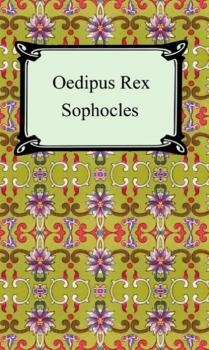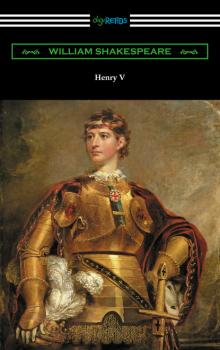Античная литература
Различные книги в жанре Античная литератураThe Complete Plays of Sophocles (The Seven Plays in English Verse)
One of the most famous poets from classical antiquity, Sophocles was one of three important ancient Greek tragedians, the others being Aeschylus and Euripides. Writing during the 5th century BC, Sophocles created some one hundred and twenty three plays during his lifetime, of which only seven have survived in their entirety. Included in this edition are those seven complete plays, as translated by Lewis Campbell and include the following: Antigone, Aias (Ajax), Oedipus the King, Electra, The Trachinian Maidens (The Trachiniae), Philoctetes, and Oedipus at Colonus. These classic tragedies are essential reading and their influence on modern literature and drama is a profound one.
Oedipus Rex (Oedipus the King)
The first drama in the Oedipus Trilogy, «Oedipus Rex», is the tragic tale of Oedipus who has accidentally killed his father and married his mother. One of the most widely read of all Greek tragedies, «Oedipus Rex», stands as one of not only the greatest dramas from classical antiquity but as one of the greatest dramas of all time. Its influence on literature and theatre cannot be overstated and it is as compelling today as when it was first performed.
Henry IV, Part II
The third part of Shakespeare's impressive 'Henriad,' this play follows «Richard II» and «Henry IV, Part 1,» and precedes «Henry V.» In this portion of the tetralogy of history plays, Prince Hal is once again out of favor with his father the king, who is in his last months of life. Falstaff, the comical criminal, is further rejected by Prince Hal, who believes he must disassociate himself with the London underworld before becoming king. This is certainly a more somber play, for Henry IV dies, and Falstaff reflects on his own approaching death. A credible play worthy of the Shakespeare's early writings, «Henry IV, Part 2» is a work of conflict, reconciliation, and musings on life and death that attest to the universal nature of the Bard of Avon's canon.
The Merchant of Venice
"The Merchant of Venice" is the story of Antonio, the drama's title character, and his friend Bassanio. Bassanio is in need of money so that he may woo Portia, a wealthy heiress. Bassanio asks Antonio for a loan and Antonio agrees to this loan, however all his money is tied up in shipping ventures. Together the two go to Shylock, a Jewish moneylender, to request a loan for Bassanio to be guaranteed against Antonio's shipping ventures. Shylock agrees to the loan at no interest in the condition that if the debt is not repaid Shylock may collect a pound of Antonio's flesh. At the same time Portia, who is being wooed by various suitors, is upset over a curious stipulation in her father's will regarding the man that she may marry.
Henry V (Annotated by Henry N. Hudson with an Introduction by Charles Harold Herford)
Believed to have been written in 1599, William Shakespeare’s “Henry V” forms the final installment of a tetralogy of plays which includes “Richard II”, “Henry IV, Part I”, and “Henry IV, Part II”. The play focuses on the events surrounding the Battle of Agincourt during the Hundred Years’ War. Henry, who is introduced in the earlier plays as a wild and undisciplined youth, has now come of age and ascended to the thrown following the death of his father, King Henry IV. At the outset of the play we find the English fleet embarking for France in pursuit of conquest of the nation just across the English Channel. At this time a plot to assassinate the King by the Earl of Cambridge and two others is discovered. Henry’s cleverness in uncovering the plot and the ruthlessness in which he deals with the conspirators exhibits that his immaturity of youth, exhibited in earlier plays, has now past and that he has grown into a competent monarch. “Henry V”, along with the other plays of the tetralogy, provides an incredible dramatic portrayal of an important chapter in the long military conflict between two of the most powerful of European nations, England and France. This edition includes a preface and annotations by Henry N. Hudson and an introduction by Charles Harold Herford.
Romeo and Juliet (Annotated by Henry N. Hudson with an Introduction by Charles Harold Herford)
Based upon an Italian tale which was translated by 16th century English poet Arthur Brooke into the narrative poem “The Tragical History of Romeus and Juliet,” Shakespeare’s “Romeo and Juliet” is one of the Bard’s most popular and frequently performed plays. Romeo who is a member of the house of Montague falls in love with the beautiful Juliet, a member of the house of Capulet. The Montagues and the Capulets have been engaged in a feud for many years and as such the love between Romeo and Juliet is a forbidden one. Written near the end of the 16th century, “Romeo and Juliet,” is one of Shakespeare's earliest dramas, the story of a love that can never be truly realized and the tragedy that ensues. Regarded as one of the greatest and most tragic love stories of all time, “Romeo and Juliet” is an archetypal story of star-crossed young lovers which has inspired countless imitations on both stage and screen. This edition is annotated by Henry N. Hudson, includes an introduction by Charles Harold Herford, and a biographical afterword.
The Three Theban Plays: Antigone, Oedipus the King, and Oedipus at Colonus (Translated by Francis Storr with Introductions by Richard C. Jebb)
Sophocles, along with Aeschylus and Euripides, is considered one of three important ancient Greek tragedians. Writing during the 5th century BC, Sophocles created some one hundred and twenty three plays during his lifetime, of which only seven have survived in their entirety. In this edition are included the three “Theban” plays, which are widely considered his most important works. This collection of dramas includes “Antigone” the story of its title character, a strong heroine whose complete commitment to familial duty brings her to challenge the will of her king; “Oedipus the King,” the legend of Oedipus who is exiled as an infant by his royal father because of a prophesy of patricide and incest; and “Oedipus at Colonus,” a drama which finds Oedipus at the end of his life caught between the warring kings of Athens and Thebes who each desire that Oedipus’s final resting place be in their respective lands. These tragedies are some of the finest examples from classical antiquity and their influence on the development of modern drama cannot be overstated. This edition follows the translations of Francis Storr, includes introductions by R. C. Jebb, and a biographical afterword.
Oedipus Rex (Oedipus the King) [Translated by E. H. Plumptre with an Introduction by John Williams White]
The second Theban play written by Sophocles, “Oedipus Rex,” or “Oedipus the King,” is the drama which chronologically begins the Oedipus cycle. After Laius, King of Thebes, learns from an oracle that he is doomed to perish by the hand of his own son, he binds the feet of his newborn child and orders his wife Jocasta to kill the infant. Unable to kill her own child, Jocasta entrusts a servant with the task instead, who takes the baby to a mountaintop to die of exposure. A passing shepherd rescues the baby and names it Oedipus, or “swollen feet”, taking it with him to Corinth where it is raised by the childless King Polybus as if it were his own. When Oedipus hears a rumor that he is not the biological son of Polybus, he seeks the counsel of the Oracle of Delphi who relates to him the prophecy of patricide. Still believing that Polybus is his father he flees Corinth thus initiating a series of events that would fulfill that which the oracle has prophesied. “Oedipus Rex,” along with its Theban counterparts, “Oedipus at Colonus,” and “Antigone,” established Sophocles as one of the most renowned dramatists of his era. This edition follows the translation of E. H. Plumptre and includes an introduction by John William White.
Othello (Annotated by Henry N. Hudson with an Introduction by Charles Harold Herford)
A tightly constructed drama which is regarded as one of the William Shakespeare’s finest; “Othello” is the story of its titular character, a Moorish general in the Venetian army. Othello secretly marries Desdemona, the daughter of Venetian senator Brabantio, who disapproves of the union. The marriage draws the contempt of Roderigo, a wealthy gentleman of low moral character who is in love with Desdemona and has asked her father for her hand in marriage. Iago is an ensign under the command of Othello who is angry for being passed over for promotion. Iago plots against Othello by convincing him that his wife is having an adulterous affair with Cassio, whom he has been passed over by for promotion. As the web of deceit is woven a series of tragic events begins to unfold for all those involved. Based upon a 16th century short story entitled “A Moorish Captain” by Italian novelist and poet Cinthio, “Othello,” masterfully dramatizes the tragic consequences that can arise from jealous deceit. This edition is annotated by Henry N. Hudson, includes an introduction by Charles Harold Herford, and a biographical afterword.
The Oresteia: Agamemnon, The Libation Bearers, and The Eumenides (Translated by E. D. A. Morshead with an introduction by Theodore Alois Buckley)
The importance of Aeschylus in the development of drama cannot be overstated. Before him tragedy had consisted of the chorus and one actor; and by introducing a second actor, expanding the dramatic dialogue, and reducing the lyrical parts, he practically created Greek tragedy as we know it. Like other writers of his time, he acted in his own plays, and trained the chorus in their dances and songs; and did much to improve the performances by his development of scene and costume on the stage. “The Oresteia” is Aeschylus most famous work, a trilogy of dramas that includes “Agamemnon,” “The Libation Bearers,” and “The Eumenides.” In the first work of the trilogy, Agamemnon, King of Argos, is returning home from the Trojan War. Clytemnestra, his wife, awaits his return by planning his murder. She is angry for the murder of their first born daughter, Iphigenia, which Agamemnon has sacrificed in order to appease the goddess Artemis. The second drama, “The Libation Bearers,” is concerned with the revenge by Agamemnon’s children, Electra and Orestes, against Clytemnestra, for the murder of their father. The final play in the trilogy, “The Eumenides,” details the trial of Orestes for the murder of his mother. This collection of dramas brilliantly deals with the themes of revenge and justice and stands to this day as one of the most important collection of works from classical antiquity. This edition includes an introduction by Theodore Alois Buckley and follows the verse translations of E. D. A. Morshead.









